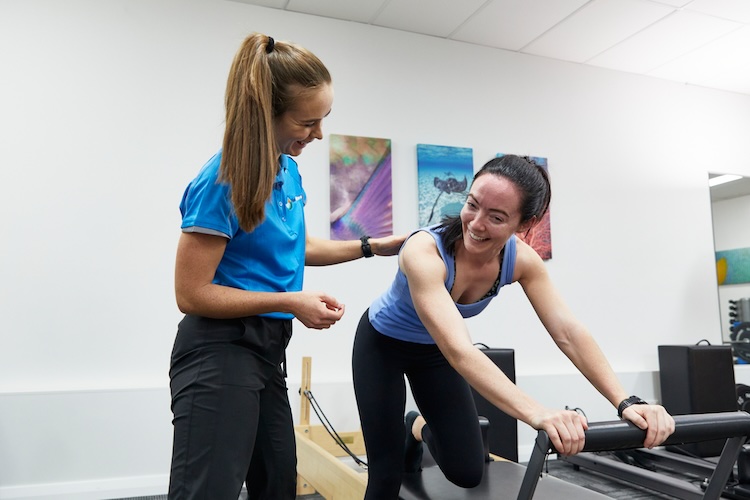Functional Capacity Assessment
Are you new to the National Disability Insurance Scheme (NDIS)?
Have been told you need a Functional Capacity Assessment (FCA) from an occupational therapist (OT)?
Not sure what to do next?
The following is a brief guide on the FCA process we follow at Next Wave Therapy.
What is Functional Capacity?
In order to be eligible for NDIS funding, you must have ALL of the following:
-
a disability that may be (or a combination of) intellectual, cognitive, neurological, sensory, physical or attributable to a psychosocial condition,
-
impairment/s that are, or are likely to be permanent,
-
impairment/s that result in substantially reduced functional capacity to undertake one or more of the following relevant activities: communication, social interaction, learning, mobility, self-care or self-management.
-
impairment/s that affect your capacity for social or economic participation
-
AND you‘re likely to require support under the NDIS throughout our lifetime
What does “substantially reduced functional capacity” mean?
A person with a disability has ‘reduced functional capacity’ when they can’t:
-
Take part in activities or tasks without assistive technology, equipment (other than commonly used items) or home modifications OR
-
Participate in an activity or tasks without the assistance of another person OR
-
Participate in an activity or task even with assistive technology, equipment, home modifications or assistance from another person.
NDIS will look at whether a person has ‘substantially reduced functional capacity’ to undertake one or more of the following 6 activities :
-
Communication: understanding and being able to express your needs.
-
Social interaction: making friends, community interactions, coping with feelings and emotions in a social context.
-
Learning: includes understanding and remembering information, learning new things, practicing and using new skills;
-
Mobility: being able to move around the home to undertake our daily living activities
-
Self-care: being able to undertake personal care activities like showering, dressing, eating.
-
Self-management: means the cognitive capacity to organise one’s life, to plan and make decisions, and to take responsibility for oneself, including completing daily tasks, making decisions, problem-solving and managing finances.
How is Functional Capacity Assessed?
The NDIS relies on the reports you provide when applying for support. Occupational Therapists are qualified to asses your functional capacity across each of the 6 areas of consideration (listed above).
When conducting an OT functional assessment the occupational therapist will firstly talk to you about your goals for functional capacity and how you hope that your life will be with more support. They then assess how you are currently managing in your day. This helps to identify current or potential challenges in your functional ability, performance skills and life satisfaction.
How do I get a Functional Capacity Assessment at Next Wave Therapy?
At Next Wave Therapy, Functional Capacity Assessments are conducted by experienced occupational therapists. They provide therapy for people with complex pain presentations, chronic pain and/or mental health concerns.
Step 1 Make an enquiry – phone or email us to complete our application form. Our receptionist’s can help you fil this form in over the phone or in clinic. They may suggest you book a FREE discovery session with one of therapists if they are unable to answer your queries.
Step 2 Application Triage – we then look at your application to decide if we are the right service and which of our therapists will best suit your needs. We provide therapy for pain and mental health needs and each of our therapists have a different skill set within these therapy areas.
You can read more about our occupational therapists here.
Step 3 NDIS Service Agreement This is completed at your initial appointment and includes information such as therapy services to be provided by the OT, pricing/cost of services, responsibilities, what happens when there is a change in the agreement and how to provide feedback.
Step 4 OT Functional Assessment This will be conducted over 2-6 hours depending on your needs. Assessment takes place in clinic, at your home, in the community and/or via tele-health depending on your needs. It involves the following:
-
Initial Consultation for information gathering, to determine what other assessment are required, set goals, make an assessment / treatment plan and complete the service agreement.
-
Further assessment(s) based on identified need from the initial consult. This may include practical assessments such as observing you in the kitchen making a cup of tea or assessing how you move in your home. Objective measures are also used for assessment eg mental health, cognition, sleep, fatigue, quality of life or impact of traumatic events scales
This process is designed to assess your functional capacity in the areas of self care, self management, mobility, learning, social interaction and communication. OT’s will also look at your productivity (work in the home, employed work, volunteer work, school) and leisure activities (quiet recreation, sport, exercise and social activity).
The assessment process is also designed to help identify what challenges are associated with your condition/s and how they impact your ability to live a meaningful life.
Step 5 Report written At completion the report will be sent to you to submit to NDIS when plan review occurs. The OT Functional Capacity Assessment Report will provide information on your current functional capacity. It will give recommendations for future therapy, supports, aids and equipment.
More information about NDIS can be found here
Please contact Next Wave Therapy admin to make an enquiry or to get the ball rolling with an application form.






